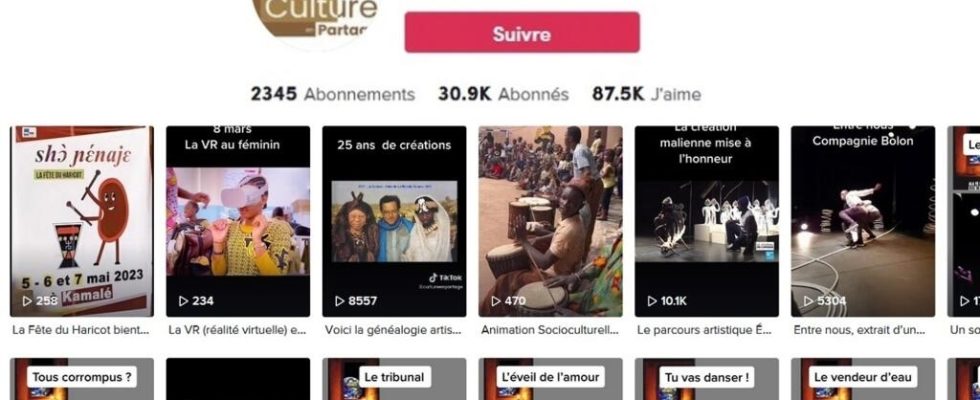This Monday, March 20 is celebrated the International Day of La Francophonie. For this year 2023, the theme chosen by the International Organization of La Francophonie is “321 million French speakers, billions of cultural content”. The aim is to promote the creation of cultural content, and above all to facilitate its distribution and access to it on the Internet.
In Mali, the association of artists Culture en Partage launched the KotEsope project on the social network TikTok and on Youtube. “KotEsope” is the contraction of “kotéba”, the famous traditional Malian theater, and “Aesop”, a writer from the 6th century BC, considered to be the inventor of the fable, who will inspire Jean de La Fontaine, Phèdre or even Charles Perrault, and to whom we sometimes lend African origins.
KotEsop, the kotéba in fables
With a series of 18 five-minute video sketches, KotEsope stages Aesop’s fables in the form of a kotéba with two actors, one who speaks in Bambara, one of the Malian languages, and the other answering him in French. Since being uploaded just a few months ago, these videos have racked up over a million views on TikTok.
” The whole of the little story contained in the fable is thus told in Bambara and in French, so someone who does not know French but knows Dioula, Bambara, Malinké etc. understands everything, and vice versa », explains Jean-Louis Sagot-Duvauroux.
This French writer and playwright, who lives between Mali and France, adapted these fables of Aesop to the Malian: ” This allows us to see how these two languages play, especially in Mali where French has gradually become a language of use which mixes in conversation with local languages. »
” KotEsop also has an educational function. We are doing a lot of work with a network of thirteen schools in Bamako. French is the language of instruction, but students often arrive without understanding it, because it is not spoken within their families. It’s very difficult to learn history, arithmetic, in a language you don’t understand. With KotEsope, we have a concept that allows us to become familiar with it, to make it something that is part of their imagination, to remember words too because we end all the sketches with a particular word that we put forward. “, he continues.
BiBook, the literary application by and for Africa
The BiBook application, a mixture of Bambara and English which can be translated as “today’s book”, offers a free catalog of carefully chosen works, the themes covered being centered on Africa and the stories that relate to it. are linked. For example, on the life of the American Frederick Douglass, the famous freed slave, or on Askia Mohammed, ruler of the former Songhai empire in present-day Mali. The latter is also the most downloaded book of the application created in 2019 and which already records more than 35,000 downloads.
” We promote reading, speaking in French too because most of our literary cafés in schools take place in this language », explains Luke Tamou Koné, developer and director of BiBook, for whom this cultural content is the best vector of the French language.
” We encourage young people to write content that talks about us, our history, our culture, which encourages us to consume it, to produce around what we live and to have a literary commitment. Because if what you write is of good quality, it spreads at least in your region of origin. It’s a big boost that BiBook gives to the French language “, he continues.
The BiBook application is currently being redesigned. It should be available again in April 2023. Building on its success, the team will install a paid option to distribute and support books by contemporary African authors.
